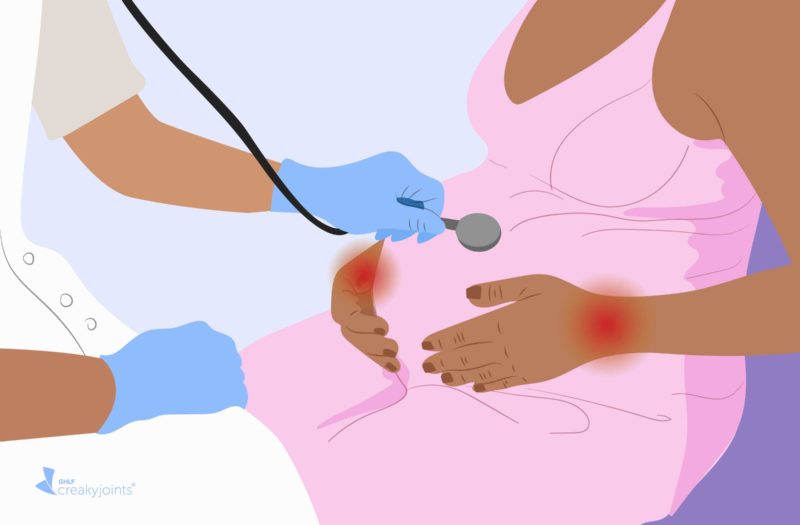Good prenatal care is important for everyone who wants to have a baby, but for women with a chronic inflammatory condition like rheumatoid arthritis (RA), it is even more essential.
If you have RA and become pregnant, you’ll want to work closely with your rheumatologist and a maternal-fetal medicine physician to ensure that both you and your baby stay healthy. (A maternal-fetal medicine doctor is an ob-gyn with additional training in managing high-risk pregnancies.) While these specialists should already have be well-versed in how to advise you on having a healthy pregnancy with rheumatoid arthritis, a new study from Italy provides specific details of an “ideal clinical pathway” that pregnant women with RA ought to follow.
The authors determined that women with RA were significantly less likely to suffer an adverse pregnancy outcome — defined as a complicated birth or a miscarriage — if they met such criteria as:
They had thorough prenatal testing to evaluate their disease activity within 18 months before conceiving and the date of delivery. Those tests include: at least one blood test to measure erythrocyte sedimentation rate and/or C-reactive protein; an imaging test (X-ray or ultrasound) of their hands and feet; at least one aPL test; at least one ANA test; and anti-ENA (anti-Ro/SSA) test.
They were not exposed to methotrexate or leflunomide, which are disease-modifying medications known to cause birth defects, for at least six months prior to conception and throughout their entire pregnancy.
They were monitored by a rheumatologist throughout their pregnancy.
Researchers found that RA patients who met all of the above criteria were no more likely than women without RA to suffer a serious complication or miscarriage.
There were not enough patients in this study who were taking biologic drugs during pregnancy to compare the outcomes of those who took them with those who did not; also, the data in the study was collected between 2004 and 2013, when there was less information available on the safety of using of biologics in pregnancy. Many biologic drugs are considered safe to take during pregnancy and current thinking says that managing inflammation and maintaining low disease activity in pregnant women is best for maternal-fetal health.
If you have concerns about which medications are safe during pregnancy, you should always talk to your rheumatologist and ob-gyn.
“The significant association between the ideal therapeutic pathway with the outcomes of the study suggests that the women who were not adherent were also not properly treated for their RA,” the authors wrote. “This reinforces the importance of adjustment of therapy for RA before conception and throughout pregnancy, because medication use could affect pregnancy course not only influencing maternal disease activity but also the gestational outcome.”
For more information about having a healthy pregnancy with RA, download our Family Planning Patient Guidelines.
Keep Reading
Bortoluzzi A. Improved pregnancy outcomes in patients with rheumatoid arthritis who followed an ideal clinical pathway. Arthritis Care & Research. January 2020. doi: https://doi.org/10.1002/acr.24116.
What is a Maternal-Fetal Medicine Subspecialist? Society for Maternal-Fetal Medicine. https://www.smfm.org/members/what-is-a-mfm.






